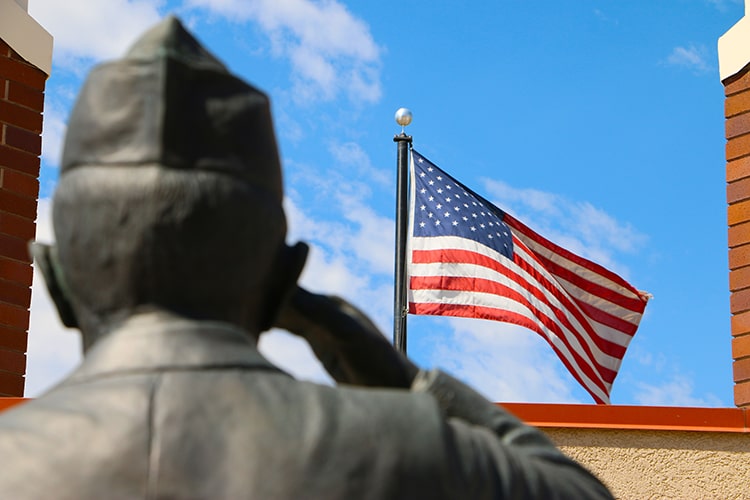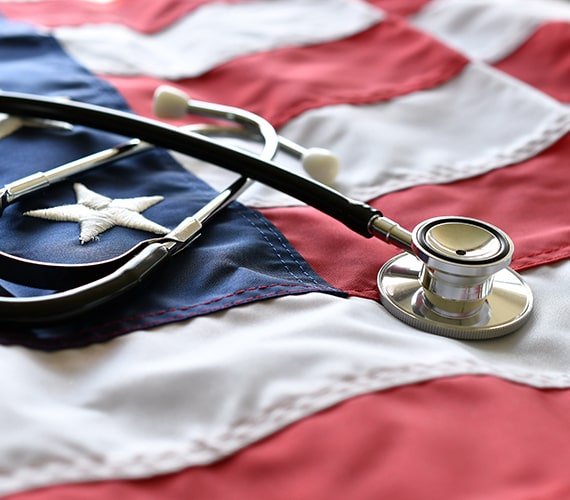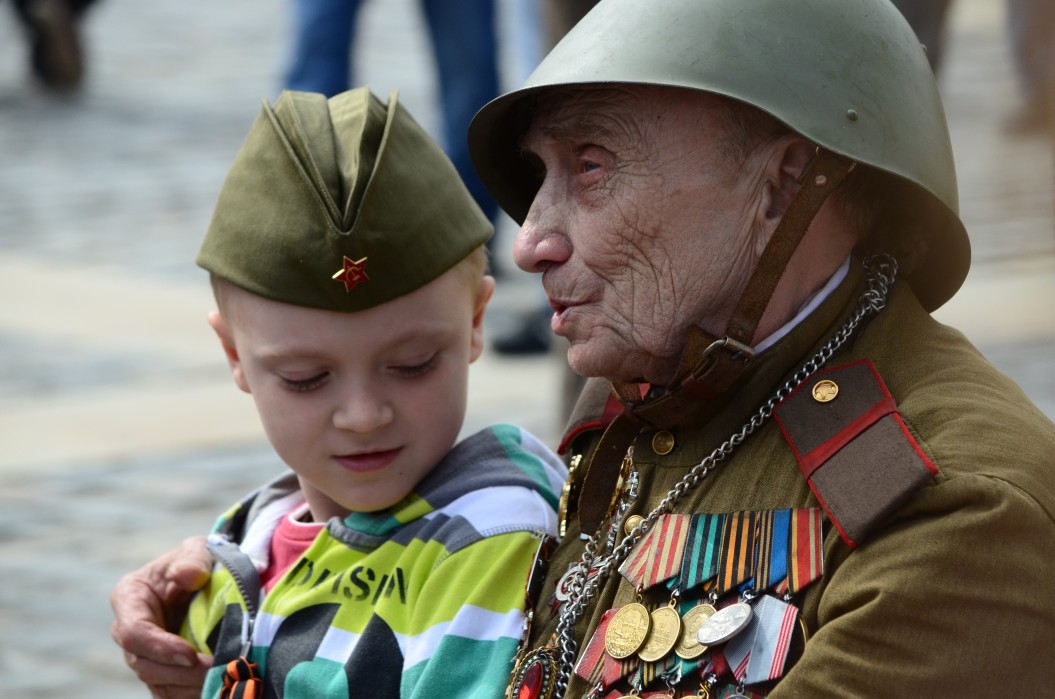Aid and Attendance Pension Benefit for Veterans
Although this is not a new program, not everyone is aware of his or her potential eligibility. “Veterans have earned this benefit by their service to our nation,” said Secretary of Veterans Affairs Jim Nicholson. “We want to ensure that every veteran or surviving spouse who qualifies has the chance to apply.”
This benefit may be available to wartime veterans and surviving spouses who have in-home care or who live in nursing-homes or assisted-living facilities.
Many elderly veterans and surviving spouses whose incomes are above the congressionally mandated legal limit for a VA pension may still be eligible for the special monthly Aid and Attendance benefit if they have large medical expenses, including nursing home expenses, for which they do not receive reimbursement. To qualify, claimants must be incapable of self support and in need of regular personal assistance.
Some Basic Criteria
The basic criteria for the Aid and Attendance benefit include, but not limited to the inability to feed oneself, to dress and undress without assistance, or to take care of one’s own bodily needs. People who are bedridden or need help to adjust special prosthetic or orthopedic devices may also be eligible, as well as those who have a physical or mental injury or illness that requires regular assistance to protect them from hazards or dangers in their daily environment.
For a wartime veteran or surviving spouse to qualify for this special monthly pension, the veteran must have served at least 90 days of active military service, one day of which was during a period of war, and be discharged under conditions other than dishonorable.
Wartime veterans who entered active duty on or after September 8, 1980, (October 16, 1981, for officers) must have completed at least 24 continuous months of military service or the period for which they were ordered to active duty.
If all requirements are met, the VA determines eligibility for the Aid and Attendance benefit by adjusting for un-reimbursed medical expenses from the veteran’s or surviving spouse’s total household income. If the remaining income amount falls below the annual income threshold for the Aid and Attendance benefit, VA pays the difference between the claimant’s household income and the Aid and Attendance threshold.
The Aid and Attendance has an income threshold for a veteran without dependents and the threshold increases if a veteran has a dependent(s). The annual Aid and Attendance threshold for a surviving spouse also increases if there is a dependent child(ren). Information is also available on the Internet at www.va.gov or from any local veterans service organization.

Aid and Attendance Benefits and Housebound Allowance
Aid and Attendance (A&A) and Housebound benefits are benefits paid in addition to a veteran’s monthly pension, providing they meet the benefit criteria.
A veteran may be eligible for A&A when:
- The veteran requires the aid of another person in order to perform personal functions required in everyday living, such as bathing, feeding, dressing, attending to the wants of nature, adjusting prosthetic devices, or protecting himself/herself from the hazards of his/her daily environment, OR,
- The veteran is bedridden, in that his/her disability or disabilities requires that he/she remain in bed apart from any prescribed course of convalescence or treatment, OR,
- The veteran is a patient in a nursing home due to mental or physical incapacity, OR,
- The veteran is blind, or so nearly blind as to have corrected visual acuity of 5/200 or less, in both eyes, or concentric contraction of the visual field to 5 degrees or less.
A veteran may be eligible for Housebound benefits when:
- The veteran has a single permanent disability evaluated as 100-percent disabling AND, due to such disability, he/she is permanently and substantially confined to his/her immediate premises, OR,
- The veteran has a single permanent disability evaluated as 100-percent disabling AND, another disability, or disabilities, evaluated as 60 percent or more disabling.
A veteran cannot receive both Aid and Attendance and Housebound benefits at the same time.
How to Apply for Aid and Attendance and Housebound Benefits
The unfortunate truth of the matter is that many veterans are unaware they themselves and/or their spouse may be eligible for VA funded care. These benefits have specific criteria that need to be met and the process is often more involved than you’d think, but it’s worth it to get a potentially large part of the cost of their care covered.
You may apply for Aid and Attendance or Housebound benefits by writing to the VA Regional office having jurisdiction of the claim. That would be the office where you filed a claim for pension benefits. If the regional office of jurisdiction is not known, you may file the request with any VA regional office.
- You should include copies of any evidence, preferably a report from an attending physician validating the need for Aid and Attendance or Housebound type care.
- The report should be in sufficient detail to determine whether there is disease or injury producing physical or mental impairment, loss of coordination, or conditions affecting the ability to dress and undress, to feed oneself, to attend to sanitary needs, and to keep oneself ordinarily clean and presentable.
- In addition, it is necessary to determine whether the claimant is confined to the home or immediate premises.
- Whether the claim is for Aid and Attendance or Housebound, the report should indicate how well the individual gets around, where the individual goes, and what he or she is able to do during a typical day.
Does the VA Pay for Caregivers? YES!
What are Homemaker/Home Health Aide (H/HHA) Services?
Taking care of another can be mentally and physically demanding. A spouse or an individual trying to do it all can quickly become depressed, injured or just worn out. A Homemaker/Home Health Aide is a trained caregiver who can come to a Veteran’s home and help the Veteran take care of themselves and their daily needs.
A Homemaker/ Home Health Aide can also be used as a way to get Respite Care at home for the family caregiver. They can help Veterans remain living in their own home.
Homemaker/Home Health Aides are not nurses, but they are supervised by a registered nurse who oversees the Veteran’s daily living needs. They are trained, licensed, bonded and insured caregivers. Homemaker/Home Health Aides work for contracted, VA-approved organizations that specialize in assisting Veterans who need skilled services such as assistance with activities of daily living or instrumental activities of daily living. Services can be used in combination with other Home and Community Based Services.
Who is Eligible?
Homecare services are part of a service within the VHA Standard Medical Benefits Package, all enrolled Veterans are eligible if they meet the clinical need for the service. There is no age requirement.
A co-pay for Homemaker/Home Health Aide services may be charged based on the veteran’s VA service-connected disability status.
Services are based on the veteran’s assessed needs. A veteran or family caregiver can talk with a VA social worker to find out what specific help they may be able to receive. For example, a caregiver may be able to come to the home daily, several times a week or just once in a while, depending on the veteran’s needs and what the VA has approved.
What Services Can I Get?
A brief list of daily activities you may be able to receive help with include:
- Eating
- Getting dressed
- Bathing
- Using the bathroom
- Moving from one place to another
- Shopping for food
- Cooking & Cleaning
- Doing laundry
- Taking medication
- Getting to appointments
- Using the telephone

What About Help for the Spouse Caring for a Veteran (Respite Care)?
For the Family Caregiver, it can be hard to find time for a much-needed break from the daily routine and care responsibilities. Respite care is time for relaxing and renewing energy. If a Veteran requires a Caregiver, the spouse is eligible to receive up to 30 days of respite care per year. The care can be offered in a variety of settings including in your home.
Respite care may also be provided after family caregiver’s unexpected hospitalization, a need to go out of town,
or a family emergency. Staying strong while caring for your Veteran means staying strong for yourself. By taking an opportunity
to be refreshed through respite care, you may be amazed at how your fresh outlook will help you and your Veteran.
There are Resources to Assist You…
If you’d like to find out if you or a family member is eligible, you’ll want to start the process sooner rather than later as it can take up to 6 months to get approved.
We recommend asking trusted sources for help with the application process, such as your care community, the local senior center, the local Senior & Disability Services office or a senior care referral agent.
